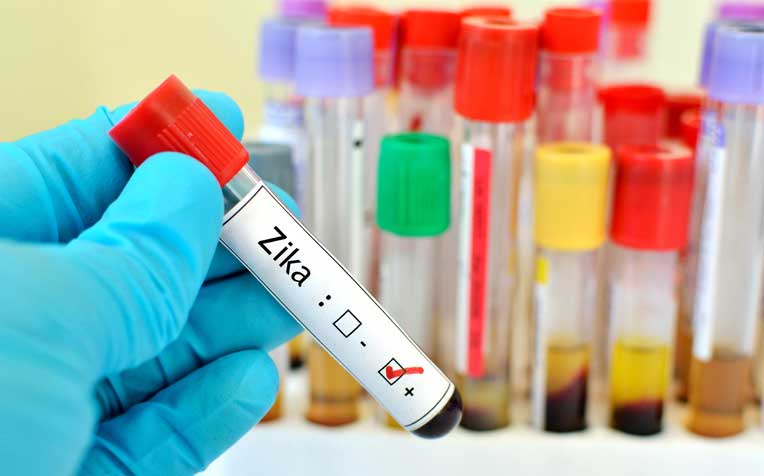HealthXchange will NEVER ask you to transfer money over a call. If in doubt, call the 24/7 ScamShield helpline at 1799, or visit the ScamShield website at www.scamshield.gov.sg.
Zika: Symptoms, Treatments, & Prevention

Zika infection causes fever. rashes, muscle and joint ache.
4. What are the symptoms of a Zika viral infection?
The exact incubation period of the Zika virus is not known, but symptoms will likely show between a few days and a week after infection. During the first week of infection, however, the virus can already be transmitted through mosquito bites.
Symptoms of a Zika viral infection include:
- Mild fever
- Skin rashes
- Muscle ache
- Joint pain
- Conjunctivitis (red eyes)
- Headache
If you’ve returned to Singapore from Zika-affected areas, you should monitor your health for 14 days and see your family doctor if you develop symptoms of a Zika infection.
5. How is the Zika virus screened and treated?
In the case of the Zika virus, prevention is better than cure. There is currently no vaccine or cure against the virus, hence, clinical management is targeted at symptoms control during the acute infection.
The screening method for Zika virus is developed from the current test for chikungunya fever and dengue.
In Singapore, anyone who has travelled to Zika-affected areas and returned with a confirmed infection will be hospitalised until tests confirm that the virus is no longer present in the blood.
6. How to prevent getting infected with the Zika virus
According to the NEA, you can help protect your family and loved ones against the Zika virus by preventing the breeding of Aedes mosquitoes.
You may do so by:
- Changing water in vases and bowls on alternate days
- Removing water from flower pot plates on alternate days
- Turning over all water storage containers such as buckets and pails
- Covering bamboo pole holders after doing laundry
- Cleaning roof gutters and putting BTI insecticide in them monthly.
When at home or outdoors you may prevent mosquito bites by:
- Using insect repellent
- Wearing clothing that covers your body, arms and legs
- Sleeping under mosquito nets
Continue reading to learn more about Zika, pregnancy and microcephaly.
Ref: P16
Related Articles
Conditions & Treatments
Public Events
Get the Health Buddy App
© 2025 SingHealth Group. All Rights Reserved.


















 Get it on Google Play
Get it on Google Play